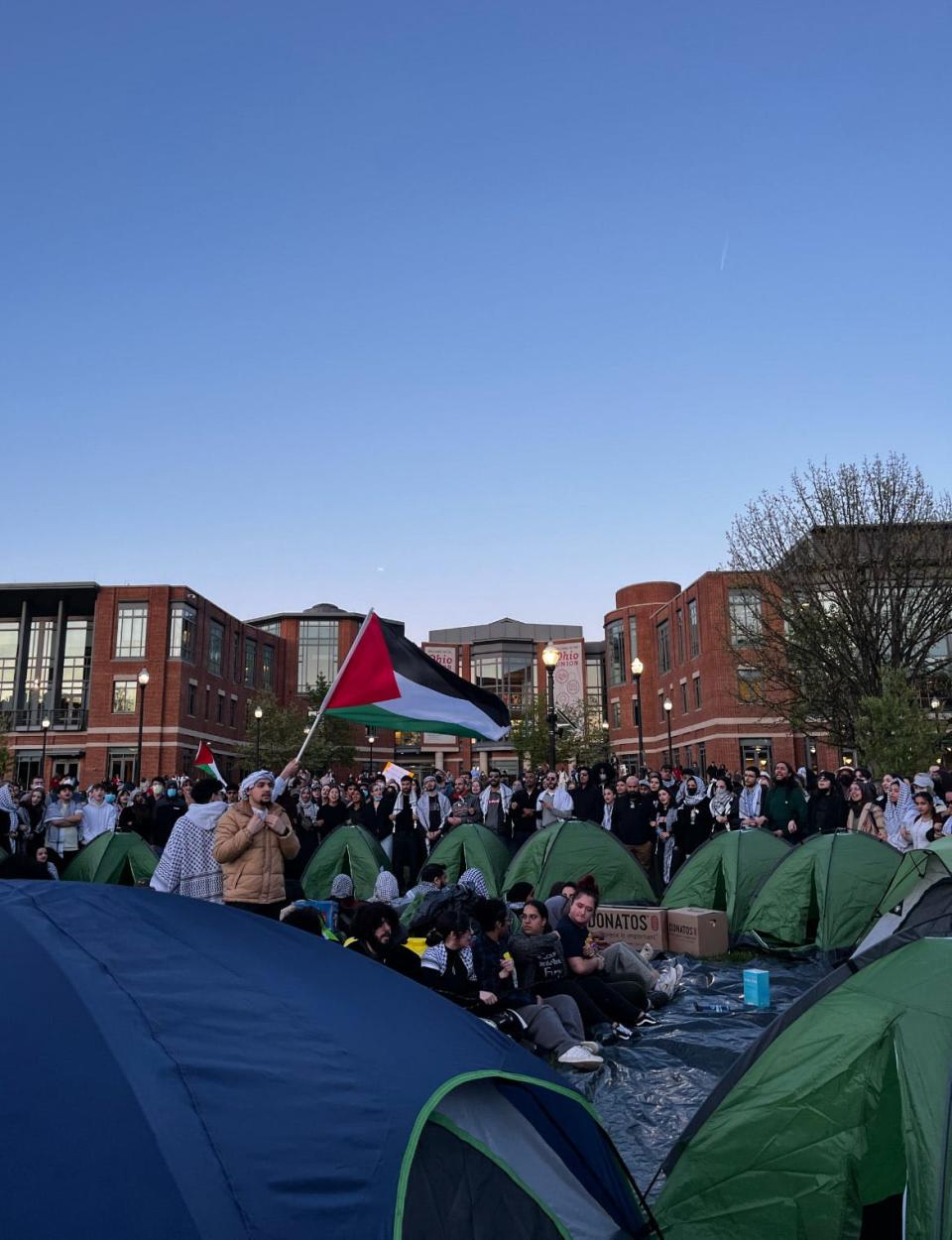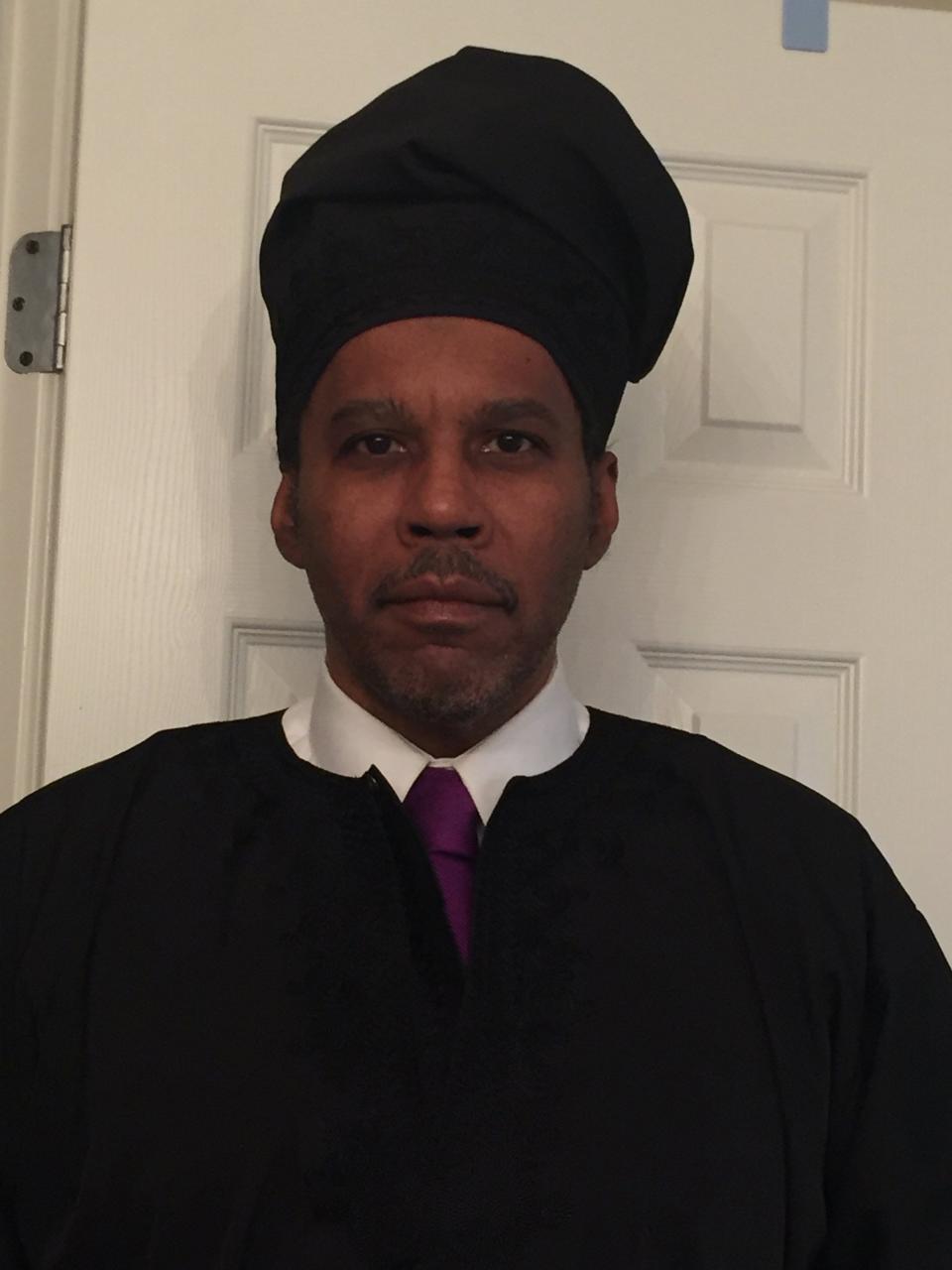Ohio has made felony charges, arrests 'consequences' of peaceful protest
Judson L. Jeffries is a professor of African American and African studies at Ohio State University and a regular contributor to the Columbus Dispatch.
Everyone is a strong supporter of freedom of assembly and speech until said right is carried out in ways that makes one and other like-mind individuals uncomfortable or goes against a rule that is intended to ensure peace and tranquility.
Many claim to be drum majors for freedom, justice, and equality, yet their actions suggest their commitment to these ideals vary according to their tolerance level for the actions taken by the aggrieved.
Those in power have always been of the mindset, that they alone determine how the aggrieved should go about registering their concerns. In other words, the aggrieved, may be permitted to demonstrate, but only in a manner acceptable to those who make the rules and those who have bought into the justification behind the rules.
Where would we be without protests? Ohio State University's leaders have a lesson to learn.
With the above paragraph as the backdrop, there are two matters this writer believes warrants revisiting.
First, there are few changes to this country’s political, cultural, and social landscape, resulting in better life circumstances for the most vulnerable sectors of the American people that are not owing to protests and demonstrations.
Concern about so-called 'safety concerns'

Some of those demonstrations have included encampments.
Reportedly, encampments are prohibited at Ohio State University, ostensibly due to safety concerns.
Is the issue really about student safety? Students have been camping out on college campuses for as long as I can remember. There is a long tradition of students camping out to get tickets to sporting events, concerts, etc.
Curiously, I don’t ever remember anyone being preoccupied with student safety.
The so-called "consequences" of protests
Second, a recent Dispatch guest column by David Jordan pointed out that with activism comes consequences.
In so doing, the Jordan referenced the modern civil rights movement. He went on to distinguish activists of that era from those who demonstrated on OSU’s grounds the night of April 25.
According to Jordan, not only were civil rights activists “under no illusion” “they accepted the consequences” of their actions.
David Jordan: Ohio State protest wasn't peaceful. Activist, supporters should stop clutching their pearls
Of the numerous men and women, to whom I have spoken over many decades, few of them have admitted being psychologically prepared for the political repression and the white terror tactics they encountered during their modern civil rights movement days.
As followers of Dr. Martin Luther King, Jr., many initially believed it was possible to appeal to the conscience of those whites who would rather see Blacks dead than see them vote, sit at the front of the bus, drink from the same water fountain or use the same restroom.
It wasn’t until after people were savagely beaten or turned up dead, did they begin questioning whether these racists had a conscience at all.
They didn’t accept the consequences that came with the fight for racial equality, they endured them because they had no choice.
The actions on the part of Ohio State activists however were not intended to be acts of civil disobedience but were done for the purpose of provoking a violent response from law enforcement, so says a previous writer.
My response: I saw no evidence to support that assertion.
Several current and former students of mine participated in the demonstration, none of whom expressed to me a desire to be pushed, shoved, manhandled or arrested.
Nonviolent protesters should not be subjected to felony charges as is the case with two Pro-Palestine protesters arrested Saturday outside of a Xavier University graduation ceremony.
The pair face misdemeanor charges of criminal trespassing and felonies for supposedly violating Ohio's Prohibition Against Conspiracy While Wearing Disguise, a 1953 statute created in response to the Ku Klux Klan.
Ohio Attorney General Dave Yost has suggested university presidents make use of this law as protests continue to unfold on university and college campuses.

What Ohio State demonstrators endeavored to do was bring attention to a development in a part of the world where the U.S. has long-standing ties and interests with the hope that university leaders might feel compelled to act in ways that might contribute to a solution rather than doing nothing as the death toll continues to climb.
Say what you will about Dr. Kristina Johnson but I have a hard time believing that things would have unfolded similarly under her leadership.
Judson L. Jeffries is a professor of African American and African studies at Ohio State University and a regular contributor to the Columbus Dispatch.
This article originally appeared on The Columbus Dispatch: OSU's overreaction to peaceful protesters a dangerous sign for liberty
